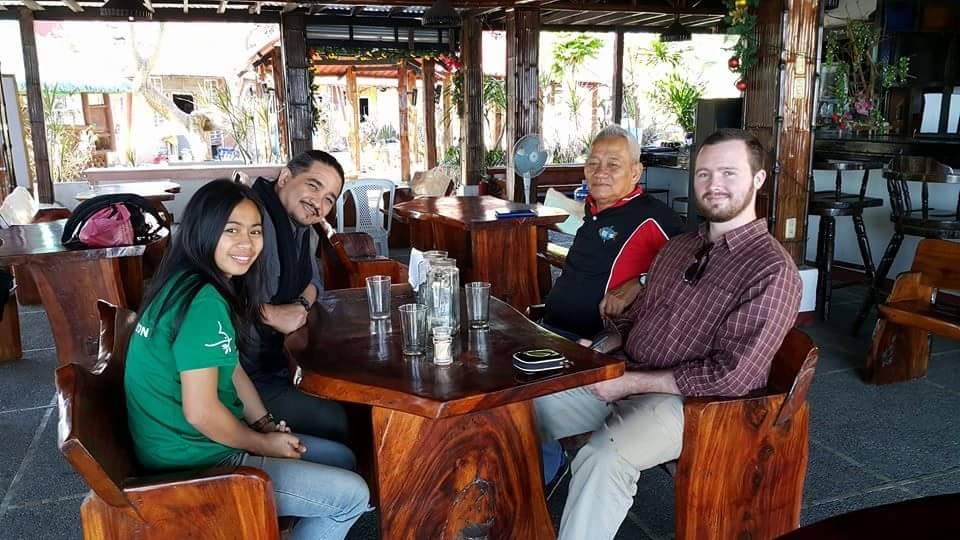
The listening tour team enjoys fellowship with Manong Mar Apilado, Senior Consultant for PBCI, in San Fernando, La Union.
On the morning of Tuesday the 10th we were back on the bus, heading for San Fernando, La Union. In San Fernando we had lunch with PBCI’s Senior Consultant Dr. Mariano C. Apilado “Manong Mar.” We told him about our meetings in Bangued the previous day, and he commended the new relationships we had forged. “Dann is both a visionary and a worker,” Manong Mar observed, “There are not many like that.” Twinkle agreed. She said that it was Kuya Dann and PBCI who inspired her vision of PAR Kalinga.
Kuya Dann told Manong Mar about the involvement of Twinkle’s family in PAR Kalinga. Her mother, aunts, grandmother, and cousins have all thrown themselves into this project “as if this is their articulated dream.” At this, Manong Mar’s eyes brightened. He was excited by the idea of an entire extended family network animated by the same mission. “But,” he said, “in fairness to Twinkle, I think her vision and passion were there all along.” It only required Kuya Dann’s and PBCI’s prompting and directing “and then all this stuff blooms up.”
After bidding our fond farewells to Manong Mar, we took the bus to Baguio City, where we spent another night at the Baguio Village Inn. The next day, Wednesday the 11th, we interviewed a young attorney in the service of the provincial government. After specifying that his opinions were his alone, and that he did not speak for his office, he told us of the Cordillera Region’s urgent need for autonomy.
So many bills (said this public servant) that are coming from the government are not relevant to the Cordillera. The framers of the policies of the federal government are from regions very different from the Cordillera. They frame the laws based on their situations and never consider the particular needs of the Cordillerans. For this reason, concerned Cordillerans like our interviewee want more self-rule, and in particular they want control of the rights to the region’s natural resources.
Under the status quo, the national corporations that harvest the Cordillera Region’s timber and minerals pay taxes on their enormous profits to the district where their main offices are located – in Makati City, far from the Cordilleras. Cordillerans want this money so that they can improve infrastructure in their territory, and so that they can govern themselves. But our source stressed that he and His Cordilleran brethren do not want to be separated from the Philippine state; they want the president to be their president. Still, they want the policies that govern them to be designed by them, to ensure that these laws will promote the well-being of Cordillerans.
The story of our listening journey through the Cordilleras continues in Part 3.






















